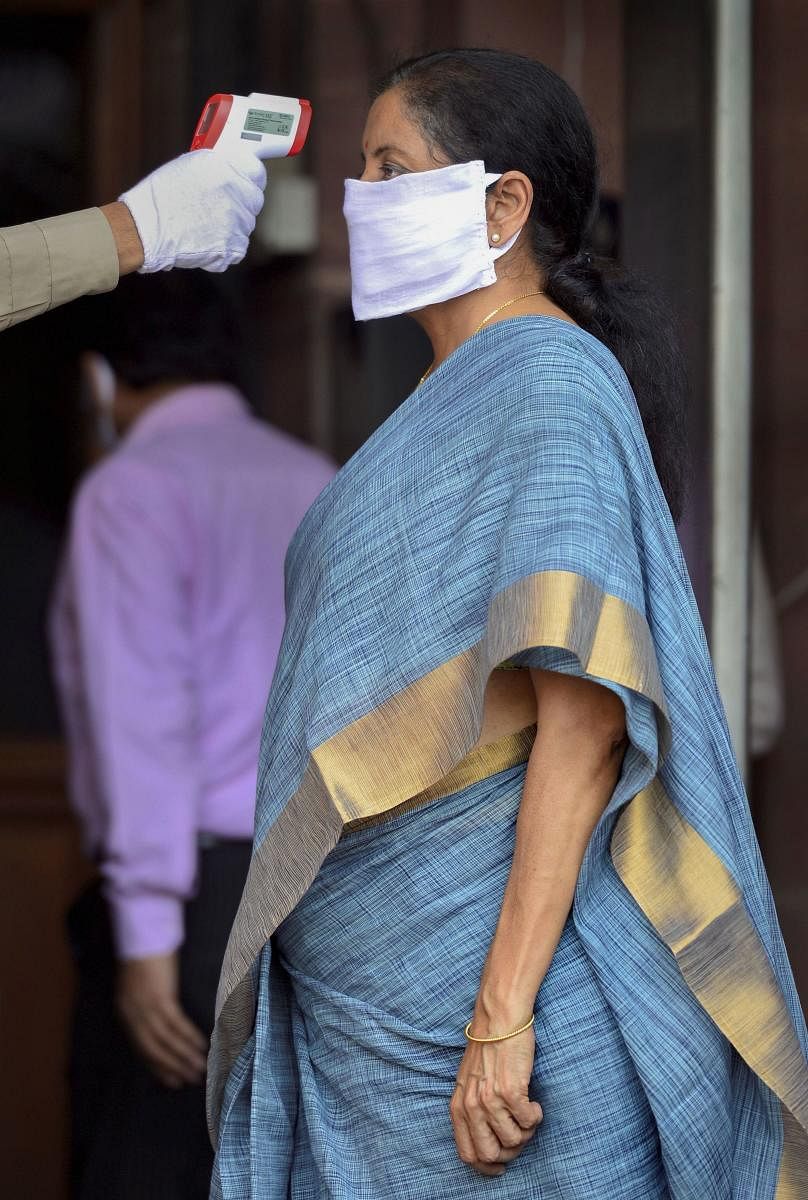
Finance Minister Nirmala Sitharaman on Friday expressed hope that trading of rupee-dollar derivatives contracts in India will generate huge volumes, given the world class business environment and competitive tax regime at GIFT-IFSC.
The minister on Friday launched INR-USD futures and options contracts on the two international exchanges -- BSE's India INX and NSE's NSE-IFSC, at GIFT-IFSC in Gandhinagar, Gujarat.
"Given the world class business environment and competitive tax regime at GIFT-IFSC, it is expected that trading of INR-USD contracts may bring volumes to India," she said.
The finance minister opened the trading facility by ringing the bell electronically through video conference.
Trading volumes on India INX have been growing phenomenally ever since the exchange commenced trading activities in January 2017, BSE said in a statement.
With a cumulative trading volume of USD 822 billion since launch and international debt medium-term note (MTN) program of about USD 48 billion, India's INR-USD derivative is expected to attract more participants to the IFSC and make India INX a leading centre for raising capital for issuers across the globe, it said.
In a separate statement, the National Stock Exchange (NSE) said introduction of rupee derivatives in IFSC is crucial for the development of Indian financial markets.
"Rupee derivatives in IFSC would help in creating a vibrant forex market in India. This will also play an important role to bring the offshore rupee market back to India and strengthen price discovery in Indian markets," it said.
The major participants in rupee derivatives contracts at NSE IFSC shall include Foreign Portfolio Investors (FPIs), corporations, IFSC Banking Units (IBUs) trading members, global banks and non-resident Indians, it added.
IFSC platform offers access for the international investors and non-resident participants who currently participate in INR trading in various offshore markets and shall offer such participants an additional trading venue at par with the other offshore market platforms.
Long trading hours and USD settlement at IFSC would also help to improve access for overseas participants and this shall in turn help these participants in hedging their rupee exposures effectively at IFSC.
"We welcome today's launch of Rupee Dollar derivatives trading from the International Exchanges at GIFT IFSC. This new reform will enable India to become a net exporter of financial services, being in sync with the vision of GIFT City as a platform for onshoring financial services business, presently being lost to other financial centres across the world," GIFT City MD and Group CEO Tapan Ray said.
With the launch of INR-USD derivatives, the trades that have migrated to other international financial centres will now return, he said, adding, India International Exchange already trades 22 hours a day and the INR-USD futures and options contract will also be available for 22 hours to all participants across the globe.
To provide a single window regulatory institution which would accelerate the development of India's first IFSC at GIFT City, the government established an International Financial Services Centres Authority to regulate all financial services in International Financial Services Centres (IFSCs).
Currently, banking, capital markets and insurance sectors in IFSC are regulated by multiple regulators -- the RBI, Securities and Exchange Board of India (Sebi), and Insurance Regulatory and Development Authority of India (Irdai).
The then finance minister Arun Jaitley in February 2018 proposed a unified regulator for the International Financial Services Centre (IFSC) at GIFT City in Gujarat.
GIFT (Gujarat International Finance Tec-City) has been set up by the state government as India's first IFSC that brings together world class infrastructure, connectivity, people and technology on a single platform for businesses across the world.